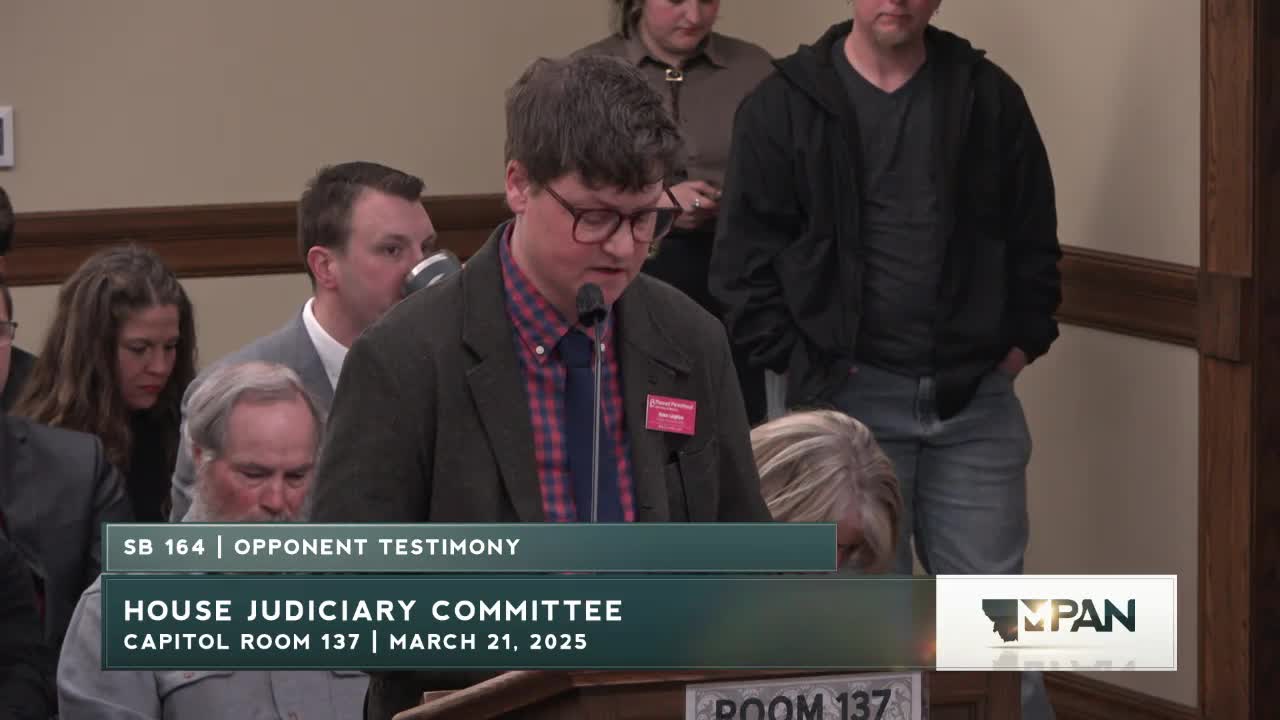Bill to roll back 2017 theft penalties draws split testimony on deterrence and prison costs
Get AI-powered insights, summaries, and transcripts
Subscribe
Summary
Senate Bill 19 would reverse portions of a 2017 overhaul and reintroduce jailable penalties and higher fines for some thefts. Retailers, sheriffs and county attorneys supported the change; civil‑liberties and fiscal groups warned it would criminalize poverty and increase incarceration costs.
Senator Barry Usher presented Senate Bill 19 as corrective legislation to reverse parts of House Bill 133 (2017) that, he said, reduced penalties for many theft offenses and unintentionally encouraged repeat retail thefts. The bill would: restore a jailable penalty and higher fine for certain theft thresholds; revise the statutory definition of “common scheme”; and align penalties for related property offenses.
Retail‑industry groups, the Montana Retail Association, chambers of commerce, the Montana Sheriffs and Peace Officers Association and several county attorneys supported the bill. Brad Griffin of the Montana Retail Association and Lewis and Clark County Attorney Kevin Downs told the committee that retailers had experienced increased organized theft and that misdemeanors under the current law are underreported because they carry no jail exposure.
Opponents included the ACLU of Montana, Catalyst Montana, Montana Budget & Policy Center and local public‑defense and community organizations. Witnesses argued the bill would increase incarceration of low‑level offenders—some stealing to meet basic needs or because of substance use disorders—and would add costs to the state for jail beds and prosecutions. The ACLU cited Department of Justice research that harsher penalties do not reliably deter property crime and urged investment in diversion and social‑service responses.
Representatives asked for data showing retail theft trends. County attorneys and retailers said felony thefts have increased and that misdemeanors are not being tracked consistently because they produce fewer formal filings; opponents countered that increased penalties are an ineffective deterrent for crimes driven by poverty or addiction. The Office of the State Public Defender and the Department of Corrections provided informational testimony focusing on operational impacts: OPD estimated added workload equivalent to multiple full‑time defenders; DOC and advocates raised concerns about bed capacity and costs.
No vote is recorded in the provided transcript. The hearing exposed a familiar legislative tradeoff: law‑enforcement and commerce interests emphasizing deterrence and recovery, and civil‑liberties and fiscal groups stressing downstream fiscal and human‑service costs.
